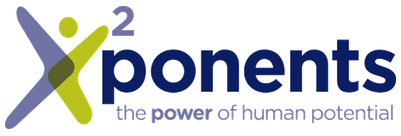Generational Differences and Career Planning
Dec 8, 2011 2:26:09 PM
Lately I’ve had conversations with my clients about how to coach to career plans and goals that create more engagement and passion. Some of the opportunities they’ve identified are:
- Create a trusting relationship so conversations about employee’s career path are authentic.
- Effectively collaborate on identifying developmental priorities.
- Balance goals between organizational and individual needs and wants.
- Remember to look at both the short and long term.
- Set goals and action plans that create break-throughs that align with team member values.
- Check-in to celebrate and coach periodically.
The other interesting dynamic that has become a topic of conversation: How do the generational differences play into career planning?
This topic has really sparked my interest. As a result, I have been doing a bit of research on the generations. I haven’t formed a strong opinion yet about how Generation Y differs from Generation X in terms of developing IDPs, but I am gathering some information that is causing me to delve deeper into some specific areas.
For example, this week some of the research articles I’ve posted on Facebook and LinkedIn, uncover some of the myths that exist in terms of Generation Y. Many of these myths I’ve heard articulated by Managers during discussions on how to coach for performance. “These younger employees today don’t want to put in their time…they want my job after a couple of months of experience.”
What value is there for Managers in understanding the generational differences when it comes to career coaching and planning? I found one nugget so far that may be worth exploring about assumptions.
I was listening yesterday to a Podcast interview by the co-author of Passion and Purpose, John Coleman (listen to that Podcast here). John talked about how best we can harness the skill set of Generation Y. One example he gave is their ability to offer insight on how to cross boundaries. He went on to talk about how his research indicates that because of the exposure this generation has had to technology and how quickly they have learned to access information, multi-task, and assimilate that they may be in a unique position to see ways to merge paths that before now would have been seen as unrelated. He went on to talk about a potential flaw is this generation’s impatience, as they have been programed to move quickly. Fascinating stuff!
Then I had my big a-ha moment. John personalized his research by saying, “Our generation,” and I suddenly realized that he was putting himself in the Generation Y bucket. I was surprised. I had not thought about him in terms of age, but I realized in that instant that I had made an unconscious assumption. The way he articulated the subject matter, his poise and maturity, had led me to think he was older.
So here I am making assumptions that maturity comes with age. Of course I consciously know this is not true, but it raises the question: How do my assumptions impact my confidence in another person’s ability?
Perhaps what I’m learning is that while we seek to understand others we must also understand our own bias and belief system. Assumptions are dangerous, especially when you don’t realize you are operating with them! Leader Coaches who want to have dynamic and transparent career conversations must get curious and ask questions about what creates passion and purpose for each individual, or we risk projecting what is import to us on to others.
If you like this blog, I think you will like my book The Cycle of Transformation. Available now






